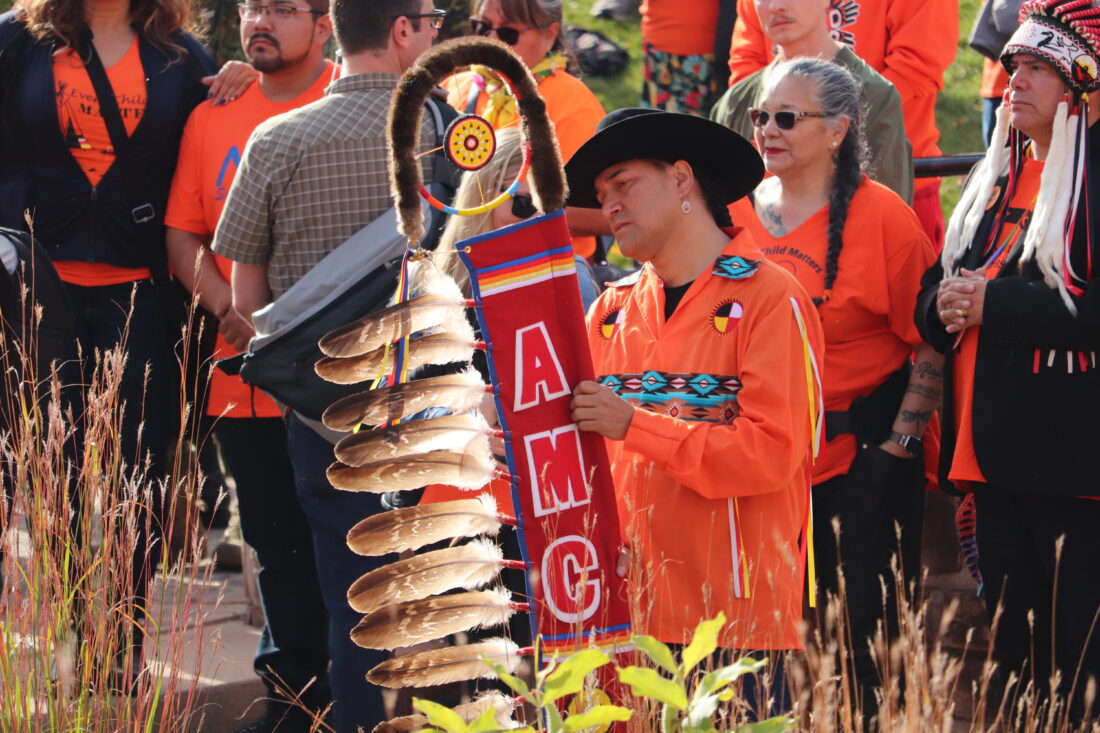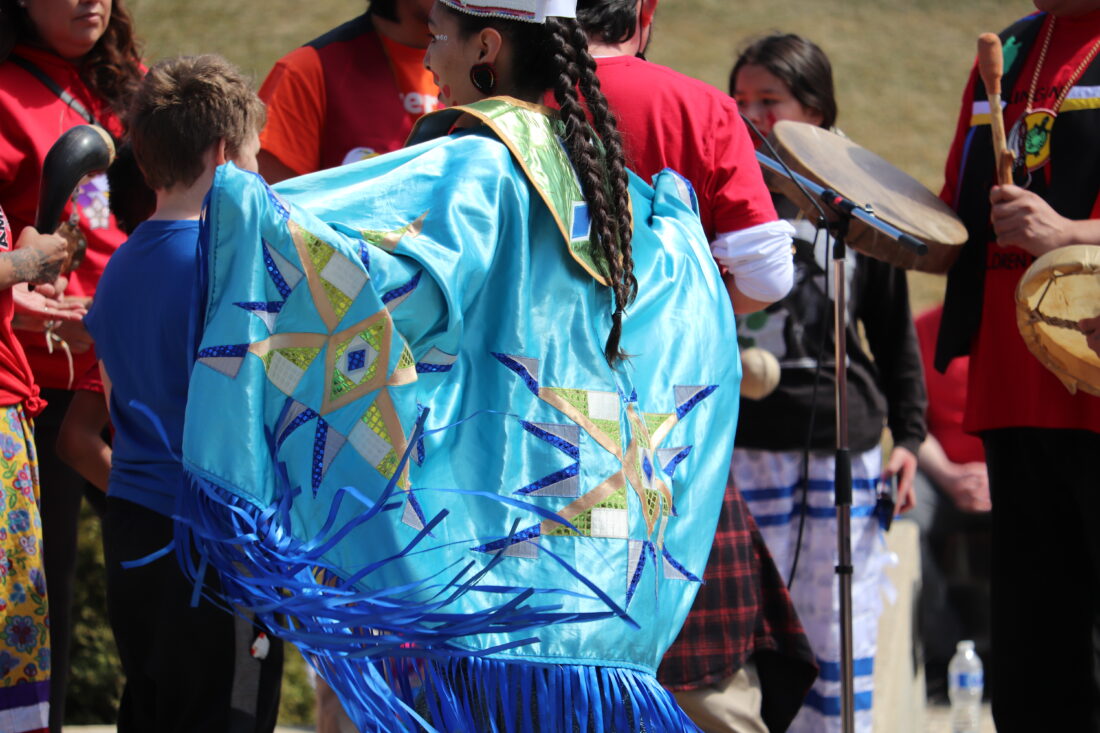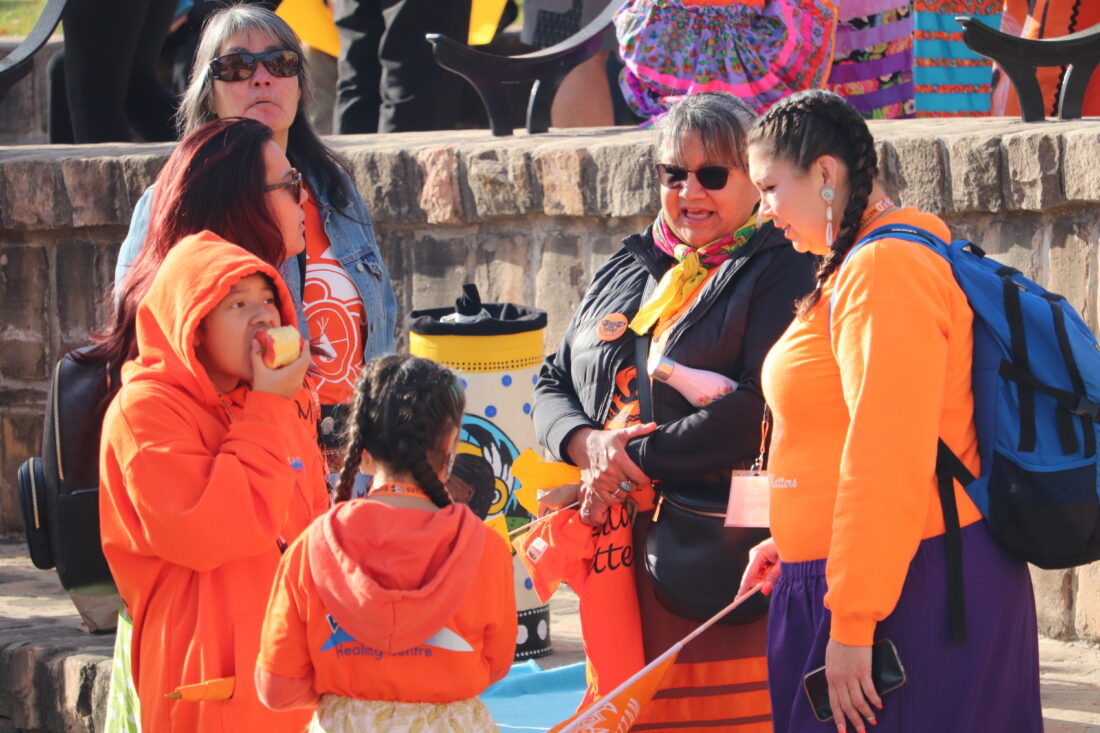Background and History
Advocating for Our First Nations Children

The Assembly of Manitoba Chiefs (AMC) officially opened the Manitoba First Nations Family Advocate Office (FNFAO) on June 1, 2015. The office opened in ceremony, where the office was gifted the name “Abinoojiyak Bigiiwewag.” This translates to “Our Children are Coming Home” in Ojibway.
Community consultation determined the need for an advocacy office. In May 2014, the AMC hosted community engagement sessions in Winnipeg and Thompson, Manitoba.
Hundreds of First Nations citizens attended the sessions, where they shared the atrocities and challenges that were imposed on them, their families, and communities. The information gathered at the sessions prompted a report entitled Bringing Our Children Home (BOCH). The report offers 10 recommendations to immediately address many of the issues and concerns identified in the community engagement sessions.
The office was gifted the name
“Abinoojiyak Bigiiwewag”
which translates to
“Our Children are Coming Home.”
Information from the BOCH report was used to create the Bringing Our Children Home Proposal Submission. This was provided to both the federal and provincial governments.
Without any funding commitments from government, the AMC began implementing the action items identified in the BOCH report. The AMC began by hiring a First Nations Family Advocate and Assistant Family Advocate.
The FNFAO is an added mechanism to:
- implement the recommendations of the BOCH report; and
- ensure that support is offered to children and families.
Since opening our doors, the FNFAO has completed intake for over 1,500 families who are fighting to have their children returned to their homes or First Nations. More families, parents, and grandparents continually seek the services of the FNFAO. The demand for services grows continually.
In Manitoba, the challenges with the child welfare system are enormous. Child welfare and the institutionalization of children is a billion dollar industry in our province. This system feeds children into other institutionalizing industries such as:
- justice;
- health; and
- Employment and Income Assistance.
The reality is that First Nations children are beginning life as institutionalized citizens of this country.
The FNFAO is recognizing serious infractions such as compromises of Human Rights for both children and families. There is an immediate need for action to begin changing the system.
Manitoba Leadership Declaration
Leadership Declares Action To “Bring Children Home”
First Nations leaders in Manitoba met on Treaty One Territory on June 10 and 11, 2014. It was unanimously declared First Nations – united by the sovereign right and responsibility to raise, care for, and nurture children – are committed to stopping the apprehension of First Nations children by the provincial child welfare system.
We assert our duty to establish a First Nations Child and Family Service System focused on the empowerment of our families, our communities, and our nations.
Empowering First Nations and Providing A Voice to Reform the System
Children must be ensured safe and quality care as well as knowledge, teachings, and access to:
• Family • Community • Cultural ceremonial ways • Connection/purpose in Life • Ancestral land • Ancestral waters • Way of life • Education • Protection within and outside of their Nation •
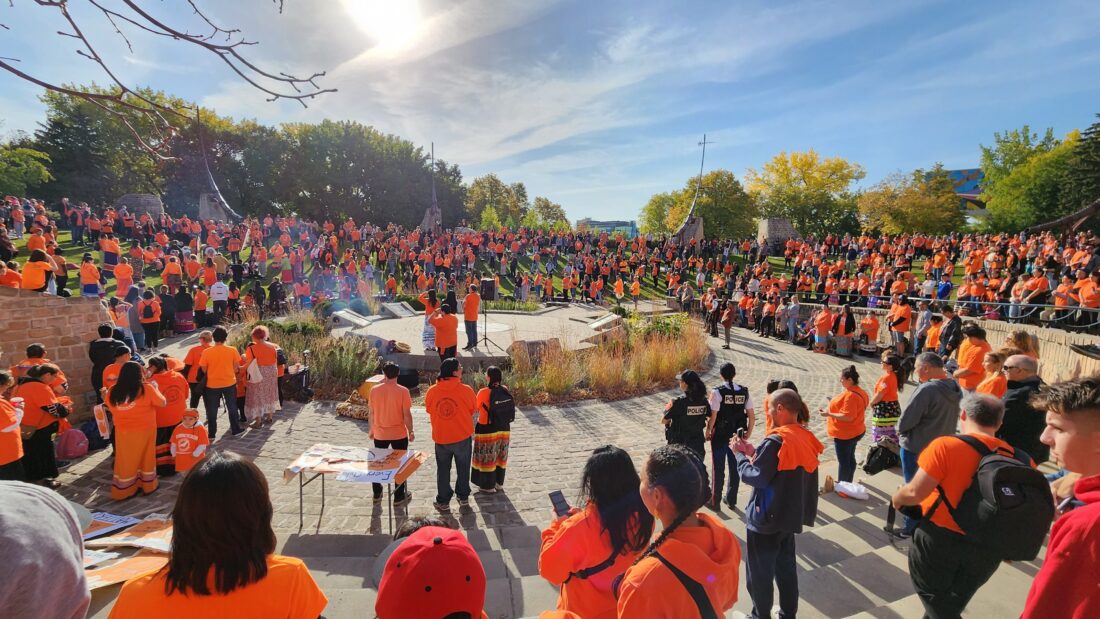
Developing the way forward requires the meaningful involvement of parents, families, and communities. This includes a focus on rebuilding strong family structures rooted in First Nations natural laws, principles, and natural support systems.
Our Mission
To support and advocate for First Nations families involved with the Child and Family Services system by challenging existing jurisdictions, policies, laws, and organization using First Nations knowledge, customary laws, traditions, and belief systems to create positive change for our children, families, and communities.
Our Vision
By advocating action through prevention, education, culture, and collaboration, we will strengthen our sovereign rights to empower First Nations individuals, families, and communities while ensuring improved health, support, care, and safety for our children.
Our Goal
“Bringing Our Children Home”
Our Guiding Principles
The First Nation Family Advocate is actively guided by Manitoba First Nations Leadership recommendations.
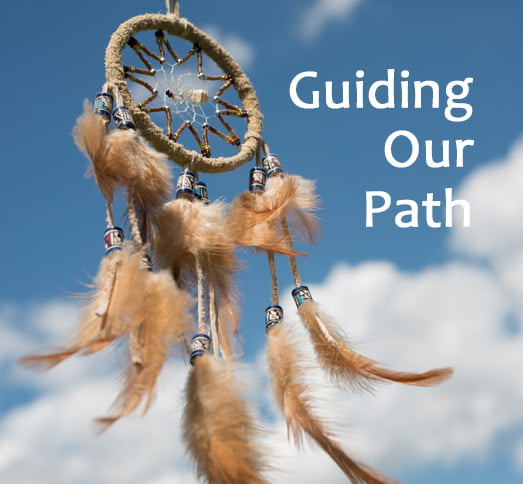
The AMC explored the child welfare system in Manitoba from the perspective of the people who must deal with the system directly including children (now adults), parents, grandparents, workers, and support workers. The recommendations from this report provided the guiding direction for the FNFAO.
Overall, there must be a transition to a First Nations system that is based on the original systems of child rearing, education, and nurturance of individual spirit. We will find appropriate ways to break the existing cycle to restore spiritual, physical, mental, and emotional health and well-being based on the First Nations principles of love, compassion, respect, and dignity.
Using the guidance of the First Nations Elders and Grandparents, and a direction from the higher power of Spirit, this new path will be created with a long-term goal of “Bringing Our Children Home.”
Focusing on a Care Model based on Prevention
Adopt the priority of prevention and focus on re-unification and strengthening of families while understanding child safety is paramount. Only once all alternatives have been exhausted would any removal from extended family and community be considered.
Establishing a First Nations Advocate for Families
Establish an Office of the First Nations Family Advocate that will challenge the system to address unethical practices and decisions enforced upon families or decisions that contribute to negative impacts on the child’s spiritual, emotional, mental, or physical well-being and safety.
In addition, the First Nations Family Advocates will work with children and families involved with CFS to ensure:
- Children are not placed in care for experiencing unique needs due to medical, behavioural, or mental health reasons.
- Children who have been through a traumatic experience receive full supports for at least one year before any consideration of Voluntary Placement Agreements with CFS agencies.
- Advocacy for children and families to receive other services within and external to the community.
- Family reunification by providing guidance and support to parents on their healing path.
- Access to healing supports for children and other family members to deal with system involvement and support families to move forward together.
Protecting Cultural Identity
The first six years of education are the most important in teaching a child who they are. First Nations have the knowledge and carry the gifts to help children to understand their identity, language, and culture. This must be the first and immediate priority to ensure that the young ones, wherever they may be physically, are being supported spiritually, emotionally, and mentally to understand who they are and where they come from.
The Elders and Grandmothers are integral to providing children with these teachings and ways of knowing to develop a concrete understanding of their culture, community, and individual identity. It will be important to identify all people that need to work together on implementing this as well as the people that need to support this recommendation.
Communities will work to engage the Elders, Grandmothers, and youth to further:
- define the First Nations Rights of the Child; and
- determine the best methods to reach out to the children right now.
Every organization, school, youth initiative, community program, as well as all services and supports provided to First Nations children, youth, and families should respect and uphold the First Nations Rights of the Child as determined by the Elders, Grandmothers, and youth.
Re-learning Traditional Parenting Ways
Support the establishment of formal Grandmothers’ Council that will reclaim the important roles and share the teachings. All First Nations members will be encouraged to take back responsibility for teaching the children, youth, young mothers, young fathers, and parents to care for all children based on the original ways.
This effort will require planning, development, and coordination of appropriate activities within the communities to support families in reclaiming responsibility for the children and learning the original ways of parenting focused on protecting and loving our children.
Responding to the Youth Voice
First Nations must take the time to hear from the young people and identify what specific interventions they need to understand:
- the environments in which they live;
- how to cope with these environments; and
- how to evolve and grow in a positive and balanced way.
Consultation with young people will identify ways to meet their spiritual, emotional, physical, mental, social, and environmental needs. Community-based resources including leadership, Elders and Grandmothers, education, social assistance, housing, and child welfare can explore alternatives for young people in the community that will meet the needs identified and focus on:
- Collaboration
- Resource sharing
- Communication
- Volunteering
Promoting First Nations Solutions to Keep Children Home
It is very difficult and in some instances impossible to find placements within the community. Communities must take a proactive role in finding ways to keep children within the community.
Authorities and agencies can develop new service delivery models, examine initiatives like customary care, receiving homes, and family healing homes to have children remain in the community. The focus will be on:
- Culture and identity
- Family access
- Education
- Social networks
- Connectivity
- Regular visitations with parents, grandparents, extended family, and siblings
Transitioning to A First Nations System For Child And Family Services
All First Nations organizations must come together to develop and communicate new messages to move beyond negativity, blame, and conflict and restore peace, harmony, and cooperation.
Positive messaging will bring together everyone that needs to be involved to restore the children to the centre and design a First Nations system for Child and Family Services.
Support will need to be created for First Nations Social Work programs. The establishment of a College of Aboriginal Social Workers will ensure the Social Work Profession Act reflects the First Nations perspective, beliefs, values, and practices in the Code of Ethics adopted.
Revitalizing Original Systems of Life-long Supports
There is a strong and immediate need for healing centres in the community, a place where all people have ready access to their traditional practices, cultural ceremonies, land-based teachings/skills development, and related healing interventions (Cree, Dene, Dakota, Oji-Cree, and Ojibway).
Efforts will be made to facilitate all existing resources to come together with the guidance and support of Elders to plan, develop, and implement collaborative supports that will help parents and children to meet their spiritual, emotional, physical, and mental needs. For example:
- FAS prevention and support
- Mental wellness services and support
- Family/community supports in the home so parents can focus on healing without losing their children
- Land-based education and family services
- Long-term programs for Indian Residential School survivors and Sixties Scoop survivors and intergenerational survivors that includes healing, coping, and re-connection with self, family, community, and culture
Work will be done with the CFS agencies to ensure all policies and practices reflect the importance of family connections. This will require collaborating among community-based projects plus redirection of enhancement funds to orient and support such collaboration.
In time, the establishment of healing centre hubs can ensure every community has ready access to cultural healing interventions.
Focusing on First Nations Social Determinants of Health
Poverty can no longer be a justification for destroying families. First Nations must promote their own standards for the well-being and safety of families. In addition, families need to be housed in supportive environments and receive comprehensive supportive services.
First Nations leadership will work to adapt housing policies to meet family reunification needs and to keep children in the community. Expanding the EAGLE Urban Transition Centre (EUTC) is planned and will include supports for youth and families involved with child welfare. The goal is to also establish an EUTC in Northern Manitoba inclusive of all services.
Revolutionizing Justice System Practices
The justice system endorses the child welfare system. The formal legal system is part of the structure but disconnected from the purpose – to minimize any negative impact of a child being removed from their home. Communities are left out of the process. Children do not have a voice at hearings. There needs to be a decision-making process in which the community is empowered to develop alternative case plans and care for the child.
Efforts will be taken to examine legislation to recognize “Customary Care” by First Nations and to reclaim responsibility for the children. An evaluation of the Legal Aid system in relation to the services provided for First Nations clients dealing with child welfare is recommended.



